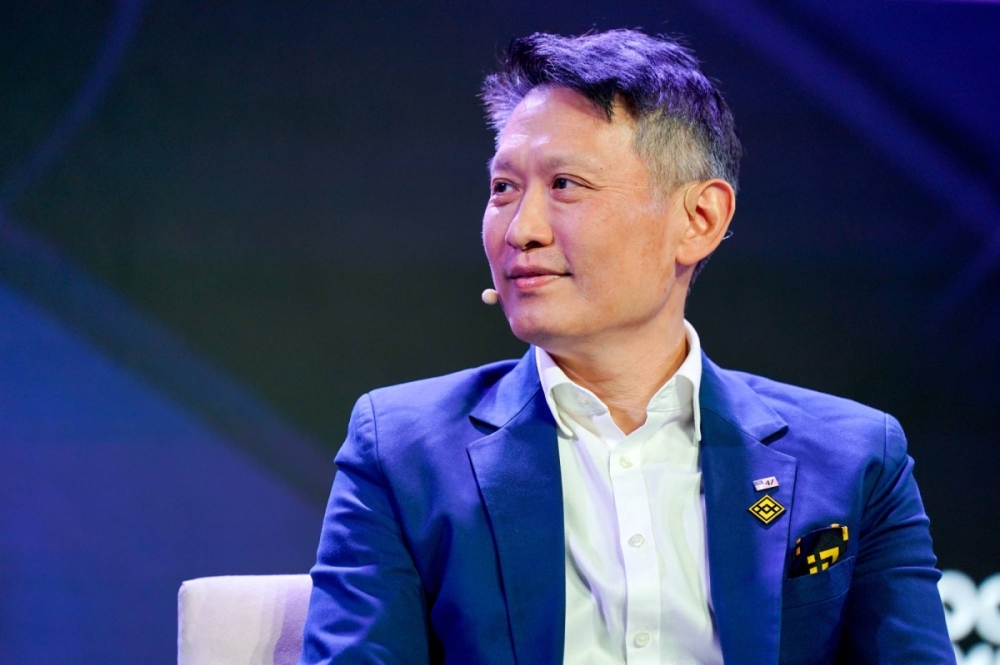Binance, the world’s largest digital-assets exchange, plans to keep hundreds of remote workers in Singapore despite a crackdown on unlicensed cryptocurrency outfits in the city-state.
The Monetary Authority of Singapore recently announced a hard deadline of June 30 for crypto firms incorporated in Singapore and offering services offshore to cease activities, prompting top-10 exchange operators Bitget and Bybit to weigh shifting staff overseas.
The new rules are expected to have a negligible impact on Binance’s operations in Singapore, according to people familiar with the company’s operations who asked not to be identified discussing confidential information. Hundreds of Singapore-based employees working remotely for the exchange won’t need to relocate, the people said.
More than 400 Binance workers label themselves as based in Singapore on LinkedIn.
Binance had no comment on its operations in Singapore and didn’t specify whether it has an office in the city-state when asked. The MAS referred to its earlier statements on the new rules.
Crypto exchanges have long posed challenges for would-be regulators by leaving their base of operations ambiguous. Binance has never named a global headquarters. Binance Chief Executive Officer Richard Teng — a former director at the MAS — said in 2024 that the company had held talks with a number of jurisdictions on the matter, but in January he described Binance employees as “remote-first.”
In a June 6 clarification to its initial announcement, the MAS said digital-asset firms offering services “solely to customers outside of Singapore” will need to be licensed from June 30 or “cease their regulated activities.” Binance is not licensed in Singapore and has been on an investor alert list there since 2021, meaning it cannot solicit customers from the city-state.
Binance staff in Singapore are seen as shielded from the recent MAS notice, however, because they mainly focus on back-office activities including compliance, human resources, data analysis and technology, the people familiar with the situation said. Working remotely, rather than in a permanent office, also helps to insulate them, the people added.

Individuals or partnerships that operate from a place of business in Singapore or incorporated in the city-state and offering digital token services outside the country will fall under the new rules, the MAS said in its May 30 statement. But work done by an individual as part of their employment with a foreign-incorporated company that provides such services outside Singapore “would not, in itself, attract a licensing requirement” under the Financial Services and Markets Act 2022, the MAS said.
“Place of business is a gray area,” said Chris Holland, partner at Singaporean consulting firm HM. “The definition of ‘place of business’ is broad under the FSMA. While the term will have a boundary, I would not encourage firms to engage people resident in Singapore and then rely exclusively on that definition to work remotely assuming that it’s outside the remit of the new rules.”
Singapore is one of Asia’s foremost crypto hubs, with a licensing regime that global players such as Coinbase Global and OKX have used to set up regional bases. But the city-state suffered a string of bruising blow-ups during the last industry downturn in 2022. Among those was Three Arrows Capital, a crypto hedge fund that imploded after a series of bad bets.
Singapore’s status as a fulcrum for the industry is now being called into question, after the June 30 deadline sparked concerns of a crypto exodus.
“There’s lot of uncertainty on Singapore’s stance on crypto,” said Raagulan Pathy, co-founder of Kast, a stablecoin startup.
Cayman Islands-based Kast has hired 100 people in the past 12 months and had planned to shift internal operations staff, trading teams and other executives to Singapore while hiring 30 to 50 people there. Now, Pathy plans to set up a global office in Dubai instead.
“Even though Singapore is merely plugging a regulatory loophole, the perception is it’s clamping down on crypto and that could push capital and talent out.”
Pathy is a 12-year resident of Singapore and has no plans to move personally, he added, but has to “make hard choices about where to locate offices for Kast.”



